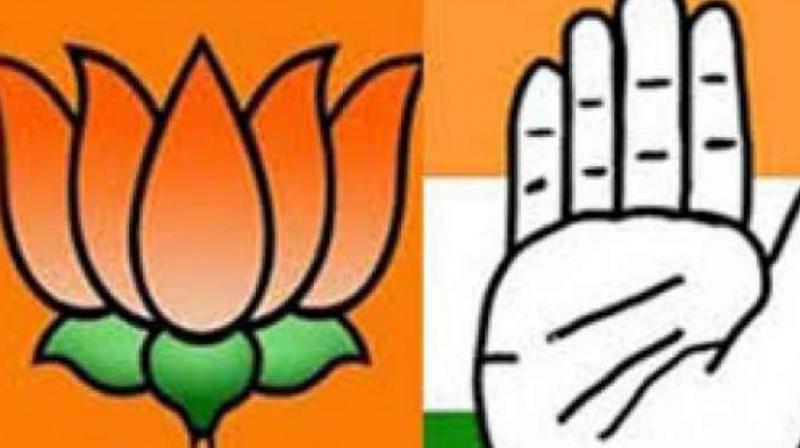A decisive mandate: Ruling party expands political footprints, opposition on decline
This election raises a range of questions for the Congress party.

The voter mandate in 2019 is historic in many ways. A ruling party is voting back to power with larger numbers and the opposition is on the back foot facing a decline of seats across the board. Not only has the BJP managed to continue to hold on to the states it did well in 2014 but has expanded its political footprints especially in the East and the North East.
In the Hindi heartland, the BJP has registered an emphatic victory. In states where it was in a straight fight with the Congress, it has done exceptionally well. Especially in the three states, where it suffered a reversal in the Assembly elections, it has stormed back to win an impressive victory. Even in Uttar Pradesh, though there may be a slight fall in the seats that the BJP won, it was able to stave off a challenge from the SP-BSP Gathbandhan. The minor losses in North India was more than made up in states like West Bengal, Odisha and the North East. In both West Bengal and Odisha, the BJP has emerged as the key challenger to the ruling party in power in the state.
This election raises a range of questions for the Congress party. This is a second national election in which the party is limited to double digits. It may see a minor increase in its seats. Its Party President is defeated in what was called the family bastion. The party success has been limited to Punjab and in tandem with its alliance partners, to Kerala. While reports indicate that the Congress President has offered to resign, it would surely be the focus of discussion in the coming weeks. The past approach of the party to place the responsibility for defeat on `collective responsibility` may not really work this time. This election has seem a clear failure of the Congress strategy, policy as well as leadership. In a sense, the leadership would be answerable to its cadres and workers.
This election seems to have initiated the process of the centrality of the opposition space being occupied by the state based parties. The way in which DMK in Tamil Nadu, BJD in Odisha, TMC in West Bengal and the YSR Congress in Andhra Pradesh have registered their electoral presence in 2019 would be the parties to watch out for in the coming months. The momentum to lead the charge against the BJP led NDA would rest with some of these parties. It would take a sustained effort for the Congress to wrest back the Initiative.
One notices a North - South divide, with the BJP making limited inroads in South India save Karnataka. To establish its pan-India presence the BJP is likely to turn its attention to the states of South India. The BJP will also focus on expanding on its successes in the East and North East.
With the ruling party now getting down to putting in place its Council of Ministers, the attention will clearly shift to issues of governance and implementing he many promises made to the people. The second term in office is always a big challenge. Many vote a party back to power in anticipation of the party gaining the momentum and implementing not merely its new promises but its older promises too. The second term would thus prove a bigger challenge in terms of popular anticipation and expectations. Reports have indicated that the BJP leadership counselled its cadres to come up with a muted celebration keeping in mind the responsibilities that the mandate entailed. The opposition seems to have accepted their defeat and the success of the BJP and the NDA with grace. One hopes that the same would be reciprocated by the ruling party and the temptation to carry forward the past politics of rancour, personal attacks and negative politics would be assiduously avoided.

